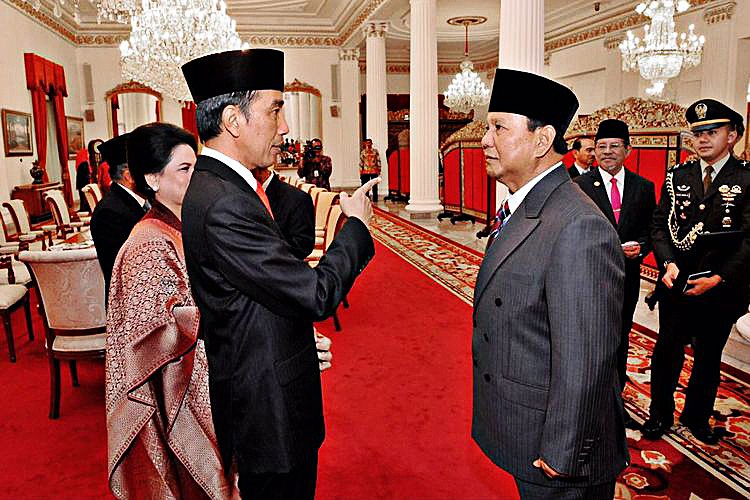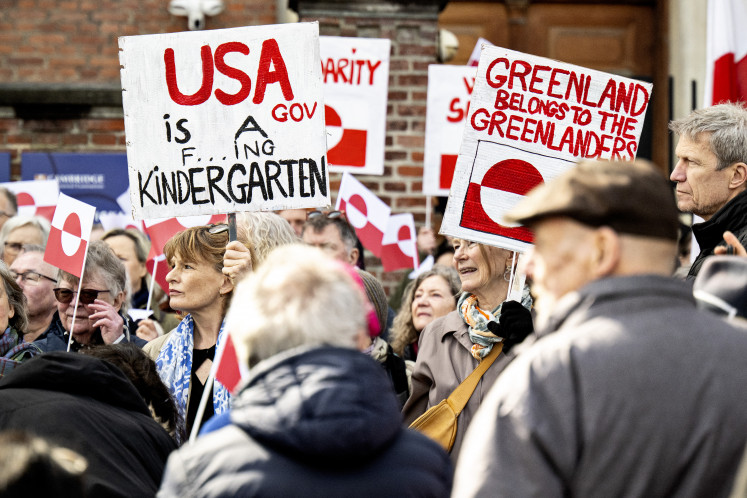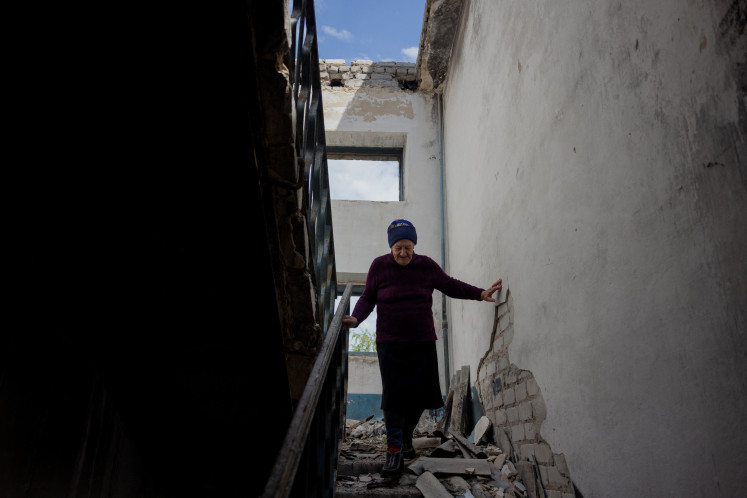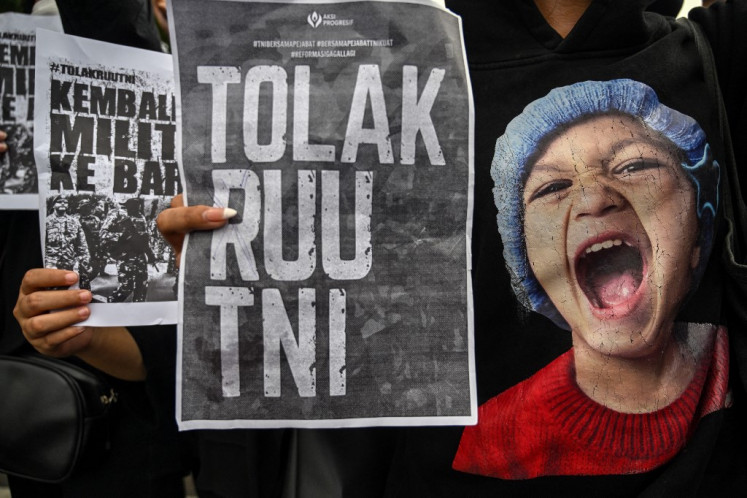EDITORIAL: Costly democracy
Change text size
Gift Premium Articles
to Anyone
 Rivals: President Joko "Jokowi" Widodo (left) talks with Gerindra Party chairman Prabowo Subianto (right) at the Presidential Palace in Jakarta on Oct.16. (Courtesy of the Presidential Office/Agus Suparto)
Rivals: President Joko "Jokowi" Widodo (left) talks with Gerindra Party chairman Prabowo Subianto (right) at the Presidential Palace in Jakarta on Oct.16. (Courtesy of the Presidential Office/Agus Suparto)
T
he dramatic revelation by East Java gubernatorial aspirant La Nyalla Mattalitti of the alleged political dowry that cost him the coveted ticket last week was relatively unsurprising, except that he attacked Gerindra Party chairman Prabowo Subianto, billed as the strongest contender for incumbent President Joko “Jokowi” Widodo in the 2019 race.
Venting his anger, businessman La Nyalla told reporters that Prabowo had asked him for Rp 40 billion (US$2.8 million) to cover the needs of witnesses, who would have to attend more than 60,000 polling stations across East Java during the June 27 election. La Nyalla said he refused the demand, as he had already poured a lot of money into Gerindra, only to see Prabowo cancel his endorsement. Later, Gerindra opted to support the incumbent Deputy Governor Syaifulah Yusuf and his running mate Puti Guntur Soekarnoputri, the niece of Indonesian Democratic Party of Struggle chairwoman Megawati Soekarnoputri.
While one could question the timing of La Nyalla’s move, which came over three weeks after he found out he had lost his bid to stand in the gubernatorial election, there is no doubt about the existence of rampant transactional politics. Reality bites: money talks in the democratic process to select leaders who are supposed to fight for people’s welfare.
La Nyalla was only one of a few aspirants who disclosed the practice out of their disappointment with failing to secure the political support needed to join the race. Also last week, retired police officer Brig. Gen. (ret) Siswandi said the Prosperous Justice Party (PKS) dropped its decision to nominate him as candidate for Cirebon mayor at the last minute after he refused to pay a “dowry” to the Islamic party, which has been building its image as an anticorruption force.
In 2007, former Jakarta military commander Maj. Gen. (ret) Slamet Kirbiyantoro demanded that the PDI-P return Rp 1.5 billion in cash that he had given as a “lubricant” for his nomination as the running mate of the party’s gubernatorial candidate Fauzi Bowo.
All parties implicated naturally deny demanding money from candidates in exchange for their nomination, although some party officials admit that politics in Indonesia is costly. In his speech in East Java last July, Prabowo estimated that a gubernatorial candidate would need at least Rp 300 billion, which is why Gerindra has proposed revising the Regional Election Law to revive the indirect gubernatorial election by the provincial legislature.
That, however, will not solve the entrenched problem plaguing our electoral system. As General Elections Commission (KPU) member Pramono Ubaid Tanthowi wrote in this newspaper on Monday, transactional politics is widespread but difficult to prove. The claims of La Nyalla and others look set to go nowhere.
Since 2016, regional elections have been held simultaneously and this year, the government has multiplied financial assistance to political parties by nearly 10 times to Rp 1,000 per vote from previously Rp 108, to minimize money politics. But at the end of the day, public oversight, as Pramono has suggested, is key to ensuring the legitimacy of elections.









